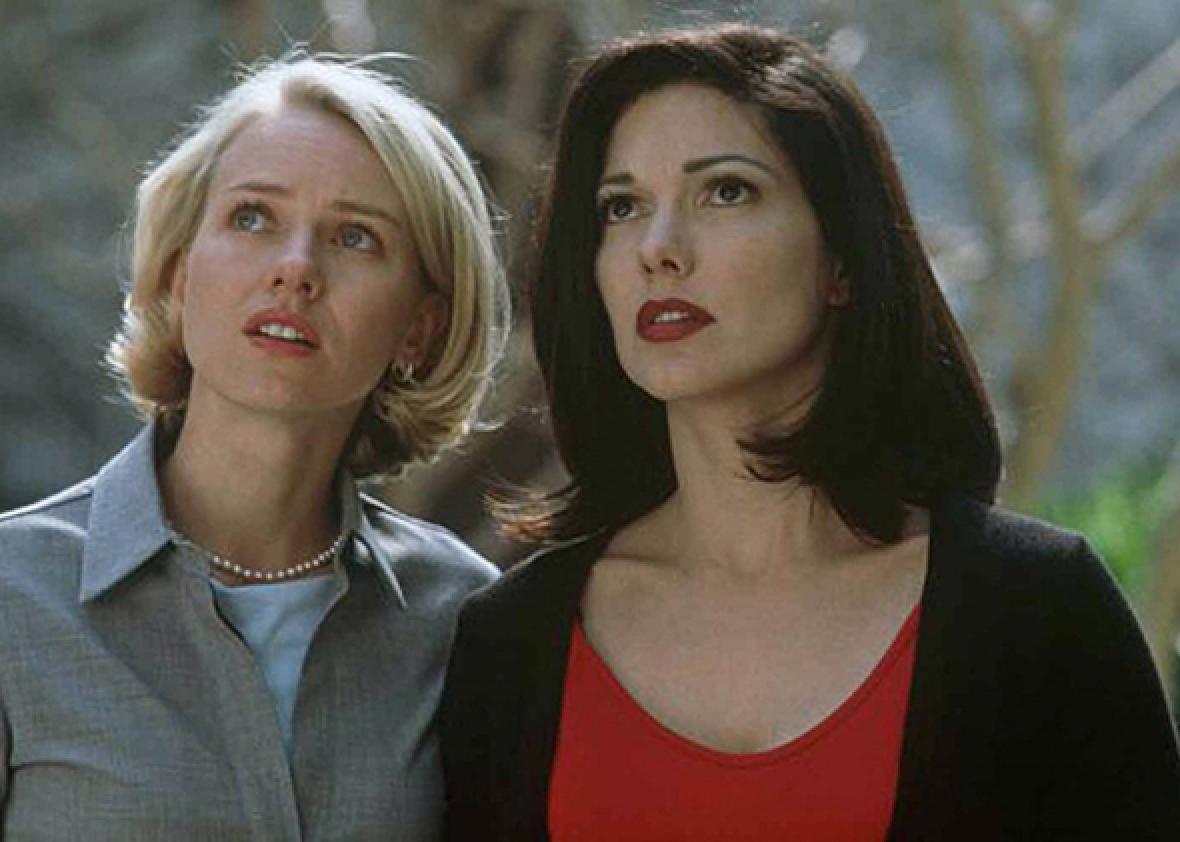The critics have spoken—177 of them, to be precise—and they’ve named David Lynch’s Mulholland Drive the best movie of the 21st century. That’s according to a new poll by BBC Culture, which also names There Will Be Blood, Spirited Away, and No Country for Old Men to the top 10.
Lists are made to be fought over, but this one is hard to argue with, in part because so many of the arguments have already been had. Its top two slots go to Mulholland Drive and In the Mood for Love, the only movies from 2000 or later to place in the latest edition of Sight & Sound’s decennial best-of poll, the most storied of critical bellwethers. (Pedants might point out that the 21st century actually began in 2001 and further that the proper screen title of the winning movie is Mulholland Dr., but let’s set those more granular arguments aside for now.) In fact, if you read a good amount of film criticism, there’s not much that’s surprising here at all. The list as a whole leans heavily on art-house favorites and is light on genre films, comedies, and documentaries. There are 12 movies with a credited female director or co-director, and while about a fifth are by directors of color, Spike Lee’s 25th Hour is the only movie by a black American.
In other words, same critical biases, different poll. From Sight & Sound and Film Comment to the Village Voice and Indiewire, these sorts of film polls tend to draw from slightly different areas of the same pool, and produce similar results—to the extent that one might well ask why we need another one, or any of them. By nature, polls iron out the idiosyncrasies of individual taste and produce what amounts to conventional wisdom. Vertigo is the greatest movie of all time? You don’t say. Varying the roster of voters can mix things up a bit: When Sight & Sound polled directors instead of critics, Tokyo Story jumped into first place, with Vertigo dropping to seventh. But it takes a concerted effort to produce something like Sight & Sound’s directors’ poll, or the 2008 American Cinematographer poll in which Amélie edged out There Will Be Blood and No Country for Old Men as the best-shot movie of the previous decade.* (Slate’s Black Film Canon is another example of how varying the methodology can produce more distinctive results.)
Disclosure, or maybe a mea culpa: I contributed to the BBC poll, and eight of my top 10 made the final list, which makes me the critical equivalent of the Phantom Tollbooth family with 2.58 children. There are no female directors on my list—although there was one until Claire Denis’ Beau Travail was ruled ineligible (though it wasn’t distributed to theaters until 2000, it first premiered on the festival circuit in 1999)—and only one comedy, if The Grand Budapest Hotel counts. There are a lot of the former and a few of the latter that just missed the cut, but it turns out 10 is an insanely small number of movies, even if you’re only drawing from the last 16 years. (It’s not even enough space for the best movie of every year!) It’s important to remember when looking at the BBC’s top 100 movies, which is actually 102 due to a three-way tie for the last spot, that no one chose, for example, Before Sunset as their 73rd-favorite movie. The relevant metric isn’t if, say, Edgar Wright’s The World’s End is among the best 100 movies of the 21st century (it is) but whether it’s the kind of movie that multiple critics would put in their 10 best. You’d almost certainly get a more diverse and interesting result if you asked 177 critics for their top 100 films, but you’d also still be waiting for ballots when the last trump sounds.
The argument against lists such as the BBC’s is that they not only reflect critical conventional wisdom but institutionalize it. Like the film critical establishment itself, the list of voters is majority white and male, although with 55 women among the 177 polled, the BBC’s sample is slightly closer to gender parity than the roster of Rotten Tomatoes “Top Critics.” There are many great movies on the BBC’s list, but there are whole categories of film barely represented at all, and those will fall by the wayside as the BBC’s picks are inevitably added to wish lists and Netflix queues.
But at this point, that danger seems more theoretical than actual. Lists have become so plentiful there’s hardly time to finish arguing over one before the next appears, but their very redundancy has become their salvation. When the Sight & Sound poll was the only game in town, its once-in-a-decade appearance had the force of holy writ, but now it’s just one canon among dozens, if not thousands. There’s a numbing sameness to poll results, but that just makes their differences—like the appearance of Asghar Farhadi’s A Separation in the BBC poll’s top 10—stand out more sharply.
As always, the real action is in the individual ballots, all 177 of them. That’s where you’ll find the outliers, the beloved orphans and oddball singularities: Wet Hot American Summer, Jackass 3D, Revenge of the Sith, Lav Diaz’s 10-hour Evolution of a Filipino Family. It’s easy to roll your eyes at these apparently contrarian picks, but it’s worth at least considering that these critics might be kidding on the square. What would a version of the 21st century’s greatest movies that makes room for Step Brothers or Death Proof actually look like? Polls tell us what everyone likes, but sometimes it’s more interesting to focus on the movies that just one person truly loves.
*Correction, Aug. 24, 2016: This article originally suggested that 2001: A Space Odyssey didn’t place in Sight & Sound’s most recent critics’ poll.
